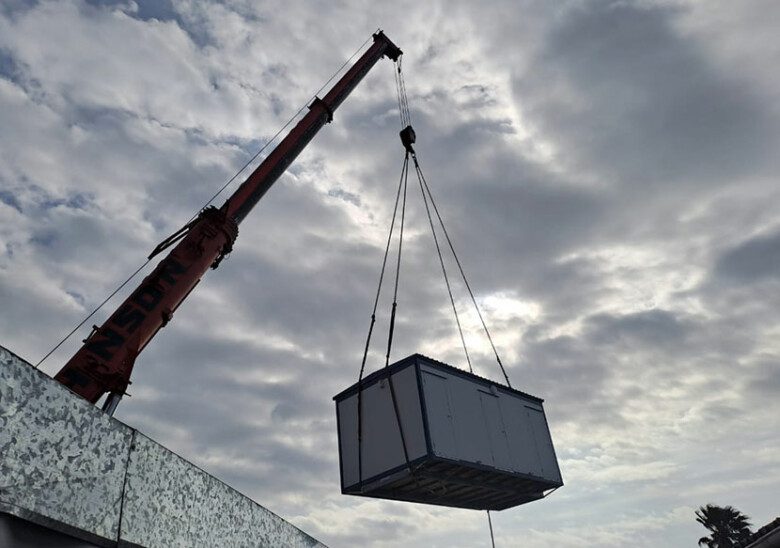Cape Town’s infrastructure and construction sectors are experiencing unprecedented momentum, with the Western Cape’s building industry contributing over R10 billion annually to the provincial economy.
As urban expansion accelerates and demand grows for faster, more cost-effective project delivery, modular construction is emerging as a transformative solution. Combining speed, scalability and sustainability, it is well-positioned to meet the evolving needs of modern infrastructure.
The city faces unique infrastructure challenges stemming from limited urban space, unpredictable weather and rising population demands. Modular construction addresses these pressures with smart, adaptable solutions that deliver space efficiency, weather resilience and flexible deployment.
Modular construction provides a clear and practical advantage, especially in high-demand environments where traditional building methods often fall short. Urban areas with limited or temporary space benefit immensely from the flexibility of modular units, which can be stacked vertically, relocated as needed, or deployed on sites that would otherwise be considered unsuitable for conventional builds. This adaptability makes them ideal for schools, site offices and clinics operating within tight spatial footprints.
Built in a controlled environment
One of the most significant advantages of modular construction in Cape Town is the ability to sidestep weather-related delays. The region’s winter rains are well-known for disrupting construction schedules, yet with modular infrastructure, up to 90% of the work is completed off-site in a controlled environment. This not only speeds up delivery but ensures a more predictable and reliable project timeline, which is critical when public services and educational institutions are involved.
As the city’s population grows and its infrastructure evolves, the demand for temporary yet high-quality solutions becomes increasingly urgent. From classrooms accommodating surging enrolments, to housing for transitional communities and clinics in underserved areas, modular units can be deployed rapidly and later reused or relocated as needs shift. It is a model that offers unmatched flexibility, sustainability, and responsiveness, exactly what is required to meet the region’s dynamic infrastructure demands.
Growth and migration are driving demand
Population growth and migration into the Western Cape are placing increasing pressure on existing school infrastructure, particularly in the education sector. A few years ago, modular buildings did not receive much attention, but that has changed dramatically. The Western Cape Education Department (WCED) is now actively exploring modular solutions to meet the rising demand for classroom capacity.
The mounting pressure for faster and more cost-effective delivery has prompted modular infrastructure providers to proactively respond to these evolving needs by diversifying their capabilities, innovating their delivery models and offering a comprehensive, one-stop solution tailored to clients’ needs.
As a result, modular construction has shifted from being a niche alternative to a strategic imperative. Local providers who innovate and align their offerings with public sector priorities and emerging market trends will be best positioned to lead this transformation.
Deep understanding of sector-specific needs
Whether expanding existing facilities or launching new ones, modular building solutions providers can ensure rapid deployment without compromising quality. This is supported by professional, efficient service and an in-depth understanding of sector-specific requirements.
A recent innovation within the modular infrastructure space is the introduction of branded modular units, giving clients a polished and professional appearance while enhancing brand visibility on-site. It is a small detail with a big impact, especially in high-profile public sector projects.
With its ability to proactively address key industry challenges while offering unmatched adaptability, modular construction is playing an increasingly important role in the region’s evolving infrastructure landscape. By delivering faster outcomes and smarter solutions, modular buildings are helping to shape the future of infrastructure delivery in the Western Cape.


